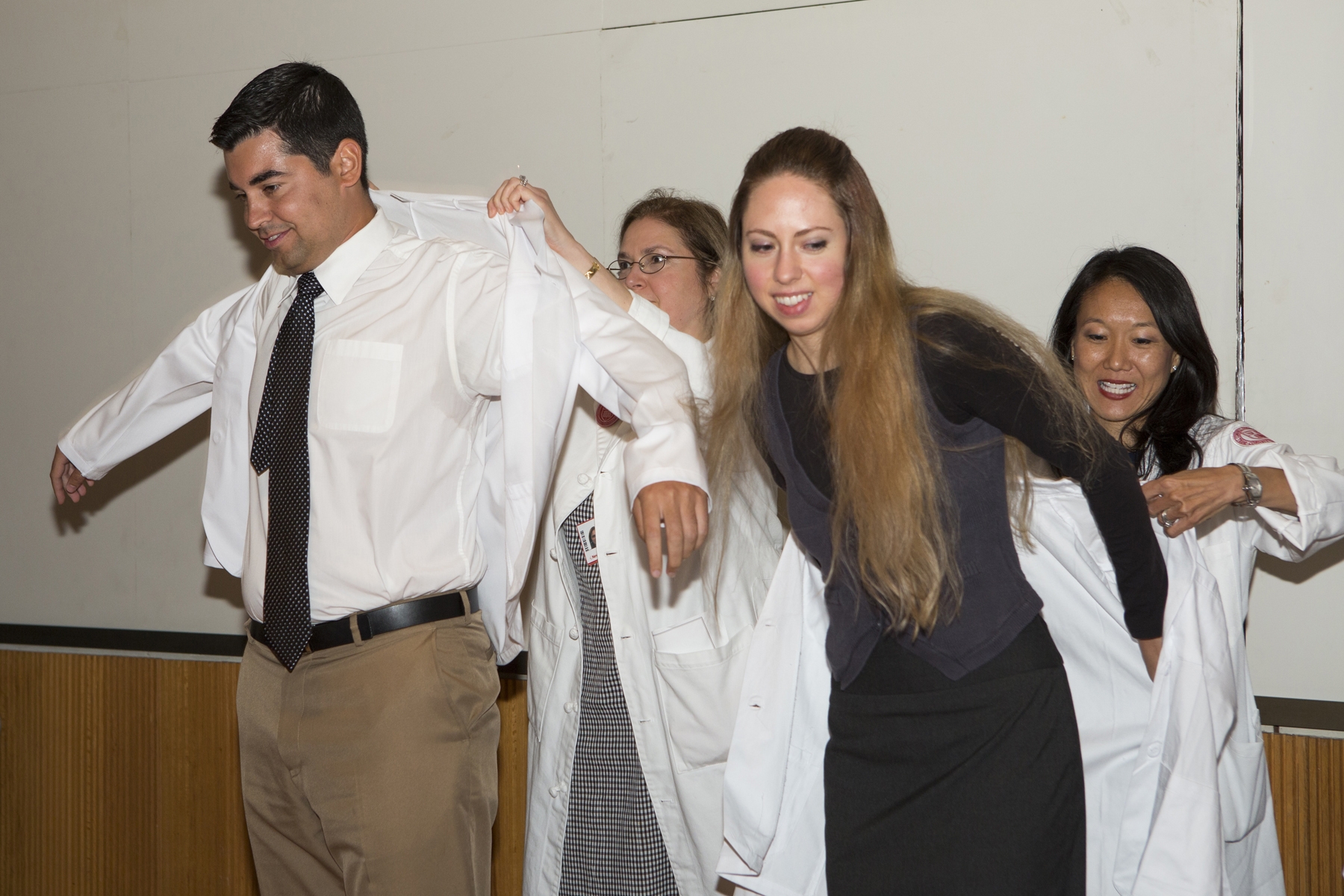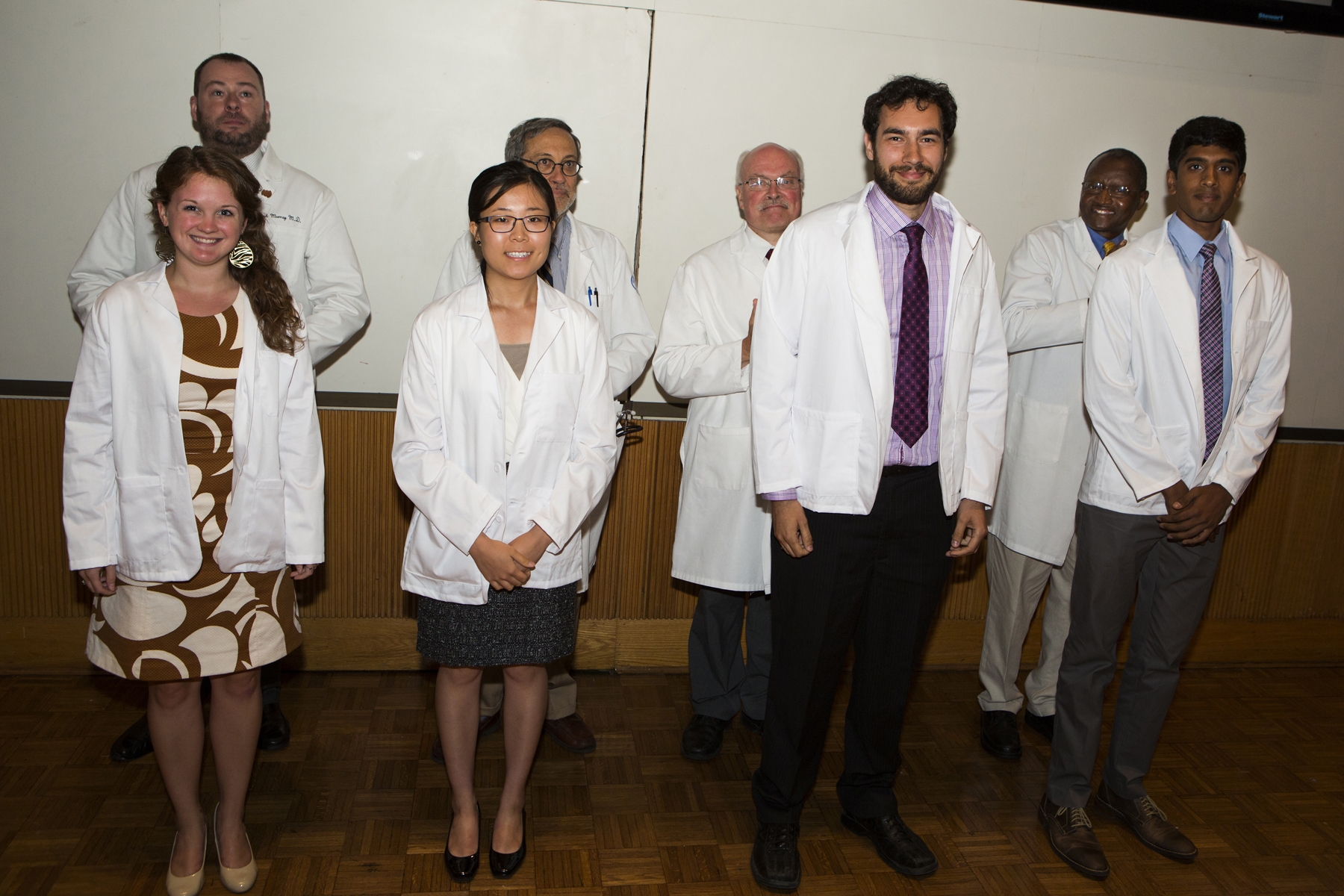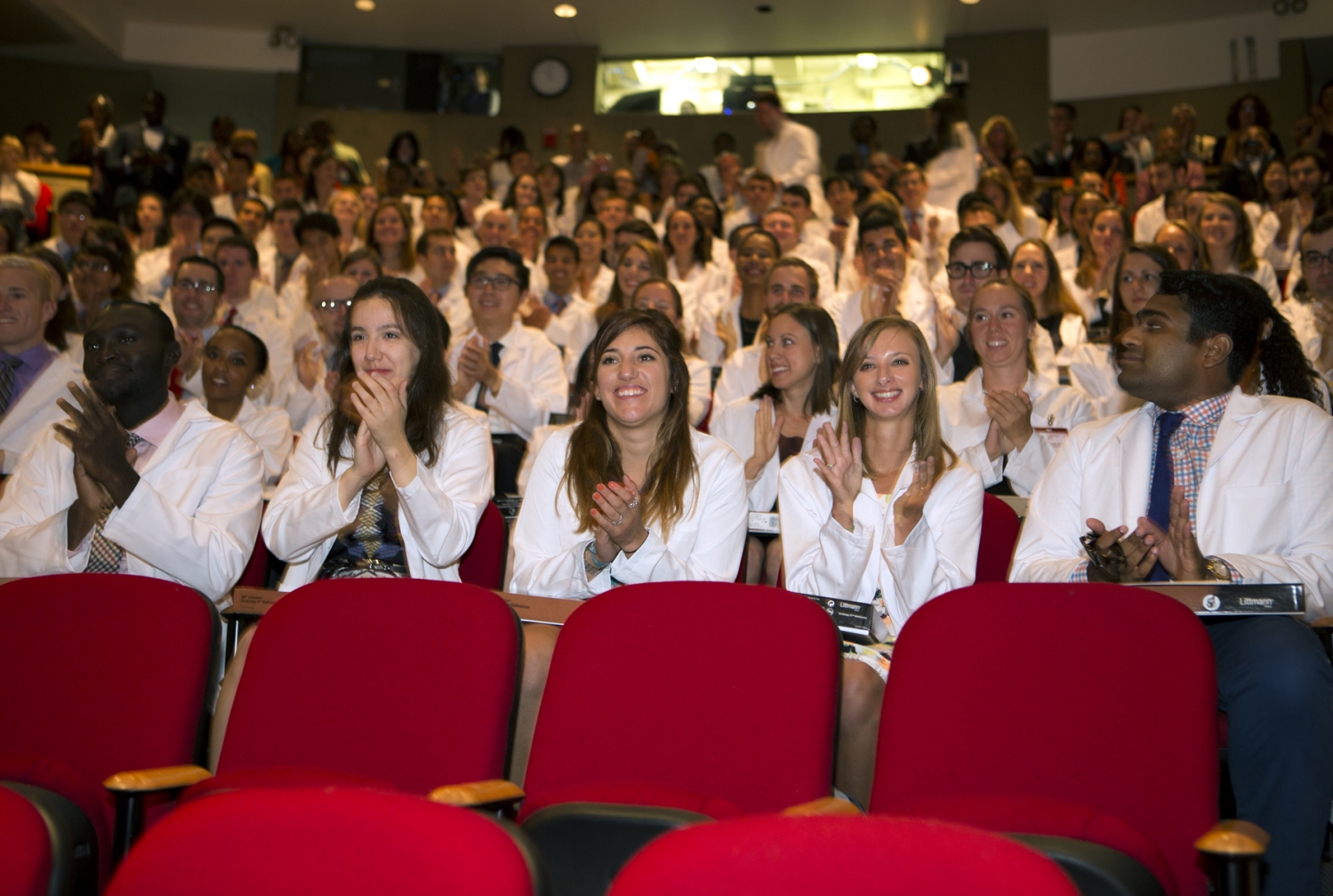Aditi Gupta knew when she was just 5 years old that she was destined to become a doctor. Her father, a physician-scientist, would take her to work with him every day. She'd watch him in the lab, assiduously working to advance human health. She was captivated and inspired.
"Medicine gives you the tool, the skillset, to make a difference in the world," said Gupta, 22, of New Jersey.
Now she's one step closer to achieving her dream as a first-year student at Weill Cornell Medical College. On Aug. 19, she and her 100 fellow classmates in the Class of 2018 shared in a celebration that honored the achievements that led them to medical school and marked a milestone in their lives: the annual White Coat ceremony.
One by one, the students descended down the steps of Uris Auditorium, where they met Weill Cornell faculty who helped them slip on their fresh white coats as proud family and friends looked on.
"You are here for a reason," said Dr. Laurie H. Glimcher, the Stephen and Suzanne Weiss Dean of Weill Cornell. "We chose you to join the Class of 2018 from more than 6,000 applicants because we believe that you can handle the immense responsibilities of learning how to take care of patients. Always put the patient at the center of everything you do.

First-year students Benjamin Gordon and Liana Greer are coated by Drs. Sibel Klimstra and Yoon Kang.
"Becoming a physician is really a privilege, it's an honor, and we believe you have the talents and will gain the experience — we have every confidence you will succeed in doing this."
In addition to the white coats, students received stethoscopes. Both were provided by the Buster Foundation's Paul F. Miskovitz '75 Stethoscope Fund for Medical Students.
The first-year students who comprise the Class of 2018 — 50 men and 51 women — have extraordinarily rich and diverse backgrounds, Weill Cornell leaders say. They hail from 20 different states and Canada, and 18 percent of them are from demographic groups underrepresented in medicine. Eighty-five of the students can speak at least one foreign language, and collectively, they can speak 15 different languages.
For many, the moment symbolized not only the true beginning of medical school, but also their inauguration into a new family that includes Weill Cornell physicians and faculty — and doctors everywhere.
"It makes it all feel real," said first-year student Sydney Ariagno, 22, of Texas. "I've been dreaming of becoming a doctor for so long, and now that it's actually happening, it's amazing."
The white coat also serves as the first tangible link to the medical careers these students aspire to achieve, and comes with responsibility and a devotion to service and humility.

First-year students, left to right, Barbara Pelham-Webb, Qiaochu Qi, Andrew Raikhel and Akhil Reddy receive their white coats from Drs. Joseph Murray, Paul Miskovitz, Peter Marzuk and Estomih Mtui.
"We cover up some aspect of our identity when we put on our white coats as we often have to keep our opinions and feelings in check as we serve our patients first," said Dr. Joseph Murray, associate dean of student affairs and equal opportunity programs and an associate professor of psychiatry. "We use our talents and knowledge in the service of our patients and we do it with a code of professional beliefs shared by all of our physician colleagues."
In his address, Dr. Charles Bardes traced the roots of the essential white coat and offered his own insight into its meaning.
"They serve as a badge, but also as a ceremony and sometimes as a barrier between the patient and the physician," said Dr. Bardes, associate dean of admissions and professor of clinical medicine. "Your white coat indicates your joyful and solemn entrance into a noble, learned and ancient profession whose purposes, above all, are to relieve suffering and to promote health."

